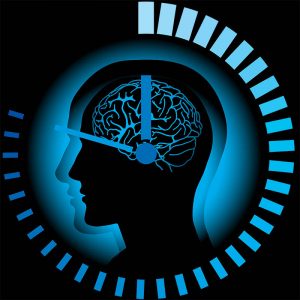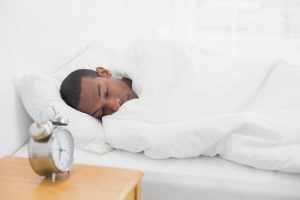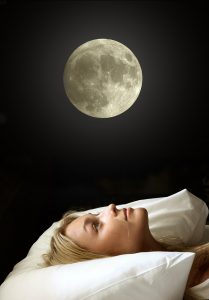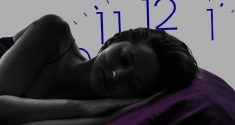Circadian rhythms involve the behavioral, mental and physical changes that occur in the body in a 24-hour period. Humans and other living organisms possess these rhythms, which are created by a variety of physiological factors in the body and triggered by environmental factors, most notably light cues. One of the best-known circadian rhythms is the human sleep-wake cycle, which is closely aligned with the earth’s 24-hour cycle of light and darkness. Learn why resetting your circadian rhythms is crucial to overall health and wellness.
Circadian Rhythms and Sleep

The master clock is situated above the complex network of optic nerves known as the optic chiasm. When visual cues indicate an absence of light, the nerves send a message to the brain. The SCN then stimulates the pineal gland to produce melatonin, the hormone that tells the body it is time to prepare for sleep
The body’s circadian rhythms play a role in numerous body functions and processes. These biological rhythms regulate body temperature, hormone release, hunger, digestion and the sleep-wake cycle. Researchers in chronobiology believe that the disruption of these rhythms is connected to a number of illnesses including bipolar disorder, depression, diabetes, obesity and seasonal affective disorder. Due to the crucial role the SCN plays in sleep, circadian rhythm dysfunctions most commonly manifest as some type of sleep disorder.
Importance of Natural Light
Being exposed to natural light during the day – especially upon waking in the morning – is an important way to ensure a healthy circadian rhythm. Shift workers may have more trouble than other when it comes to getting adequate natural light exposure. When working nights, employees often get very little exposure to sunlight. If you are trying to adjust your circadian rhythm, open window curtains and turn on bright lights when awakening. The eyes, brain and SCN then believe a new day has begun.
Conversely, whether it’s day or night, when ready to go to sleep, make sure the room is dark. Use blinds, lined curtains, earplugs and face masks if necessary. The body then perceives that nighttime has arrived, and begins producing melatonin so that sleep should come. Once adjusted to the desired hours of sleep, keep the routine going to ensure normalcy. Avoid altering the sleep schedule on days off or weekends.
The Food Connection
The body’s circadian rhythms are regulated by external factors other than light and darknessv, including exercise, external temperature and even meal timing. Consequently, whatever the reason for circadian rhythm disruption, there are a number of methods that individuals may use to reset the internal clock naturally.
Intermittent fasting is one of these options. Going without food for 12 to 16 hours mimics the fasting that occurs during typical hours of sleep. In intermittent fasting, the first meal eaten at the end of the fasting period tricks the brain into thinking that morning has arrived. Subsequently, going for eight to twelve hours without food allows the body to rest and regenerate, and the circadian rhythm to reset.
The ChronoDiet is one model of intermittent fasting that works with your circadian rhythm to ensure you’re eating the right foods at the right time of day, while also allowing a period of fasting during the night.
Sleep-Inducing Techniques
Dim Lights
One or two hours before bedtime, limit your amount of light exposure. Resist the urge to engage in working on the computer, watching TV and talking or texting on a cell phone. Leave these electronic devices out of the bedroom. Harvard Researchers, among others, have found that blue light at night suppresses melatonin production, stimulating wakefulness.
Watch the Caffeine
While trying to adjust sleeping patterns, consuming caffeine is often tempting to counteract daytime drowsiness. However, caffeine stays in the system for a long time, with only half the caffeine consumed eliminated within five hours of consumption.
To avoid having caffeine ruin your sleep, stop caffeine intake after the time of day that would be considered lunchtime, or at the very least, six hours before bedtime. Additionally, avoid anything but a quick power nap during the day.
Travel Adaptations
Travelers have the ability to counteract the effects of jet lag by changing the sleep/wake cycle before boarding the plane. Depending on the specific location, go to bed earlier or wake up later to align more closely with your destination. Staying awake until night time after arriving at the destination also helps make the adjustment to the different time zone. Many people have successfully used melatonin supplements to help prevent jetlag or shorten its duration.
Try to get at least 30 minutes of aerobic exercise three times a week. The activity stimulates the release of anxiety and stress-relieving hormones. However, as exercise increases vital signs and acts as a stimulant, avoid excessive activity right before bedtime.
Relaxation Techniques
The breathing and meditating techniques used in yoga provide an overall sense of peace and relaxation. Chamomile, lavender, passionflower or similar fragrant oils in a warm bath also soothe aching muscles and induce relaxation.
Consult with a Physician
If after trying a number of techniques to no avail, ask a physician about taking a herbal preparation, OTC or prescription medication that might include melatonin supplements. However, resist the urge to take more than the prescribed dosage.
Effects of Lunar Rhythms
Research indicates that much like sunlight exposure, the various phases of the moon also commonly affect circadian rhythms and sleep cycles. Nocturnal animals become more active closer to the full moon. Likewise, people may experience more disturbing dreams as the full moon approaches. Others may have difficulty falling or staying asleep. Keep a diary. If lunar rhythms present a problem, sleep aids may become necessary.










